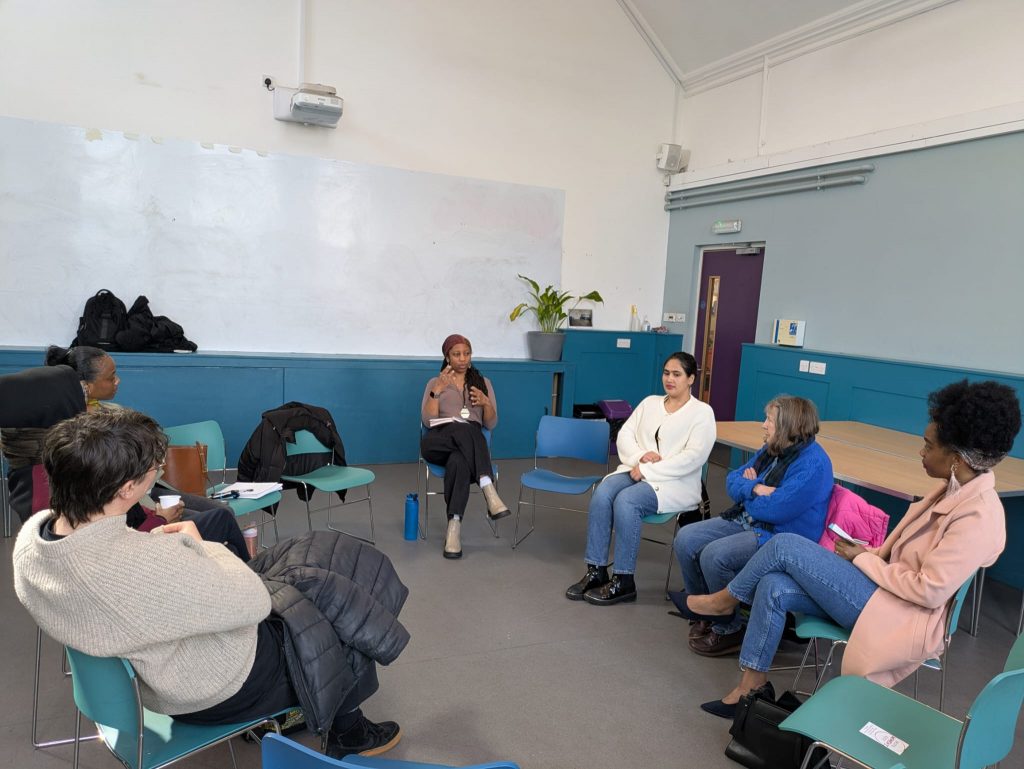
by Faith Barorot, Bristol Women’s Voice, Community Development Worker
On Tuesday afternoon, 25 March, we were honoured to welcome Lildonia Lawrence, a wellbeing practitioner, author, and advocate for racial healing.
Lildonia, a mixed-heritage second-generation Black woman, shared her personal journey of navigating racism, discrimination, misogyny, and imposter syndrome.
Carving out a space for people of colour in the wellbeing field
Growing up in London, she often felt she didn’t quite fit in, both in the UK and in the lands of her heritage. These experiences fuelled her passion for wellbeing, leading her to work in a field that remains predominantly white.
Over the past five years, she has carved out a space for people of colour (POC) within wellbeing services, ensuring that racial trauma is acknowledged and addressed.
During the talk, she highlighted how the demand for wellbeing support among POC surged during COVID-19, particularly in the wake of George Floyd’s murder.
While much of the anti-racist work happening today is focused on long-term systemic change, she emphasised the need for immediate emotional support for those currently impacted by racism. The trauma of everyday racism is often overlooked, yet it deeply affects mental and physical health.
Building resilience and healing
A key takeaway from her session was the importance of building resilience and healing through intentional self-care.
She shared some of the strategies that have helped her, including:
- Creating affirmations – reminding yourself, “I have the right to be here” and “My uniqueness is a gift.”
- Setting boundaries – if possible, set boundaries at work to avoid burnout. For example, only doing one training session per day.
- Spiritual practices – using grounding rituals to maintain balance.
- Movement – recognising that the body needs an outlet for stored trauma.
- Community – spending time with other people who understand your experiences.
Finding practical tools
Her recently published book, Back Yourself, delves deeper into themes such as microaggressions, othering, colourism, cultural conflict, and intergenerational trauma. It provides practical tools to help POC heal and thrive despite systemic challenges.
A key message during the session was the crucial need to bridge personal healing with collective empowerment. Her work reminds us that healing from racial trauma is not just about survival, it’s about reclaiming joy, space, and power.
As the event concluded, I left reflecting on how crucial it is to centre wellbeing within activism. True change requires not just fighting injustice but also creating room for healing along the way.
To order her new book, Back Yourself: A Wellbeing Guide to Healing from Racial Trauma, please visit: https://www.waterstones.com/book/back-yourself/lildonia-lawrence/9781837960897
Find our next Migrant Women Talks here.

